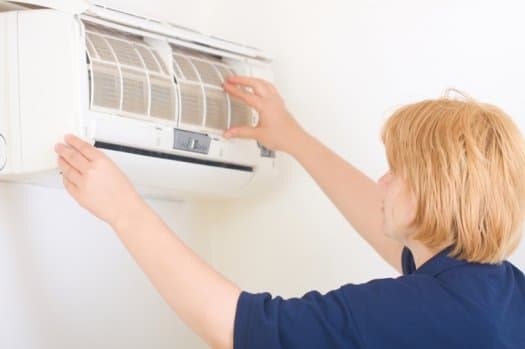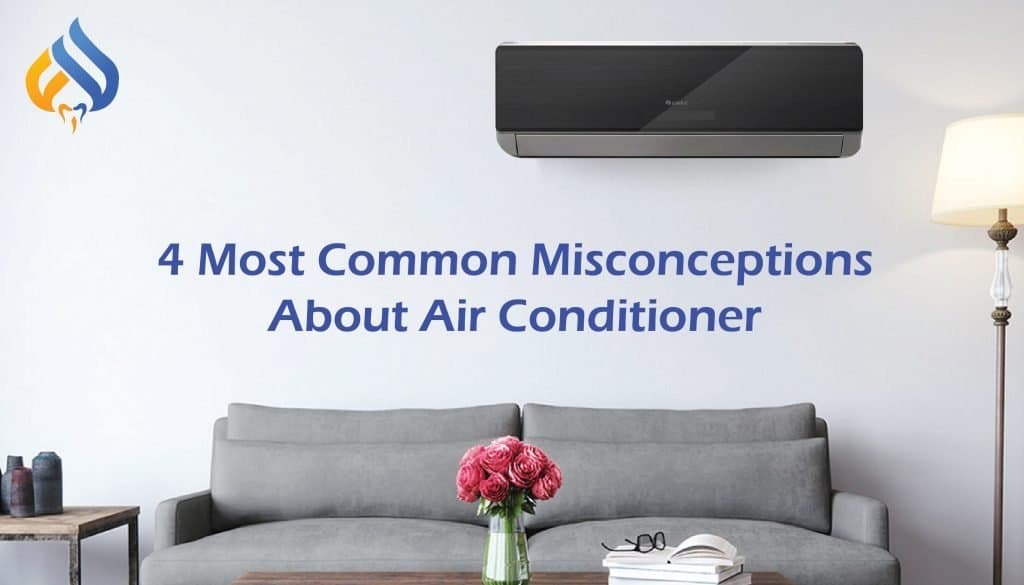Uncategorized
4 Most Common Misconceptions About Air Conditioner
Here are some misconceptions about air conditioners that might change how you select, use, and treat your air conditioner unit. This article will increase the performance of your AC unit, increase its life, and save you some money and trouble, so read to the end.
Controls the Temperature
The air conditioner unit controls both the temperature and humidity of the room. The comfort conditions for humans range from 23C to 27C and relative humidity from 45% to 55%. So, the air conditioner needs to maintain the room’s temperature and humidity to achieve desired human comfort conditions. The humidity from the room is removed in the form of condensed water droplets that are dripping from the indoor unit’s drain.
If the humidity is not removed, the sweat will not evaporate effectively for the body surface. Hence, you will feel suffocation and stickiness on the skin even if the temperature is not that high.
Cool Your Home Faster
When you adjust the Air Conditioner temperature to a lower value, you cannot expect the air conditioner to cool faster because Air conditioner does not work in this way. Indeed, the temperature setting is a target for the air conditioner. It will run (at its full/optimum potential) until the room temperature reaches the desired value. The speed to reach that temperature is not controlled by temperature settings.
In the worst case, the lower temperature wastes more power and possibly damages AC’s components. We recommend you operate your Air Conditioner on a temperature range from 23C to 27C.
Cooling Capacity
Cooling capacity does not determine the minimum temperature; instead, it determines the cooling rate. So bigger units will take less time to cool the same area than smaller units. But the minimum temperature for both cases is the same.
The room is constantly gaining heat from the environment, solar radiation, electric equipment, and people inside the room. To maintain appropriate temperature and humidity conditions, heat gain must be removed by installing an appropriately sized air conditioner unit.
So to select the appropriate size and specifications of the air conditioner unit, you must read the Complete Guide to Select Air Conditioner.
Not Regular Maintenance
In terms of maintenance, we mean indoor and outdoor maintenance as well. All the manufacturers optimize their design so that cleaning and maintenance are minimal. Still, there are limitations as indoor and outdoor are open units and need maintenance after some time.
Indoor

First, talking about the indoor, there are air filters installed inside the indoor unit. These filters are installed to clean dirt particles from the air, so the dirt does not damage or deposit on the indoor evaporator coil. If this filter is not cleaned regularly, then the dirt will attack the sensitive evaporator coil of the indoor. Also, the dirty filter will start to choke, and the cooling efficiency will be reduced. For proper functioning of the air conditioner, we advise the user to clean the indoor filters annually just a week before the summer.
Outdoor
As the outdoor unit is placed outside in an open environment, it is even more vulnerable to debris and dirt particles. There are also target for insects and birds’ nests. So, cleaning the outdoor unit annually is also mandatory for the proper functioning of the air conditioner.
Refrigerant Gas
One of the most concerning issues regarding the maintenance is maintaining the refrigerant gas pressure inside the air conditioner for as long as possible, and the manufacturers are doing this job quite well. Still, there is a minimum unavoidable leakage from the AC unit, which is unavoidable (at this rate, it will take several years for any noticeable pressure drop). Other reasons for gas leakage include gas leaks due to extreme summer conditions or damaged air conditioner components. So, if you feel lesser cooling of the air conditioner as expected, there are high chances of some pressure drop of refrigerant gas.
How to clean AC indoor unit
- Please take out the air filters inside the indoor unit and rinse them thoroughly.
- Use a blower to remove dust from the indoor evaporator coil
- Use no-rinse evaporator spray on the evaporator coil
- Use the anti-fungal spray to prevent molds.
How to clean AC outdoor unit
- Use a vacuum cleaner, a brush attachment to vacuum the condenser fins, or use a blower.
- Give a wash to the outdoor unit by pressurized water spray.
- Use the anti-fungal spray to prevent molds.
Use AC Covers
It’s a good practice to keep the air conditioner covered up while not in usage. This will save your air conditioner from dust, insects, and molds throughout the off-season.


